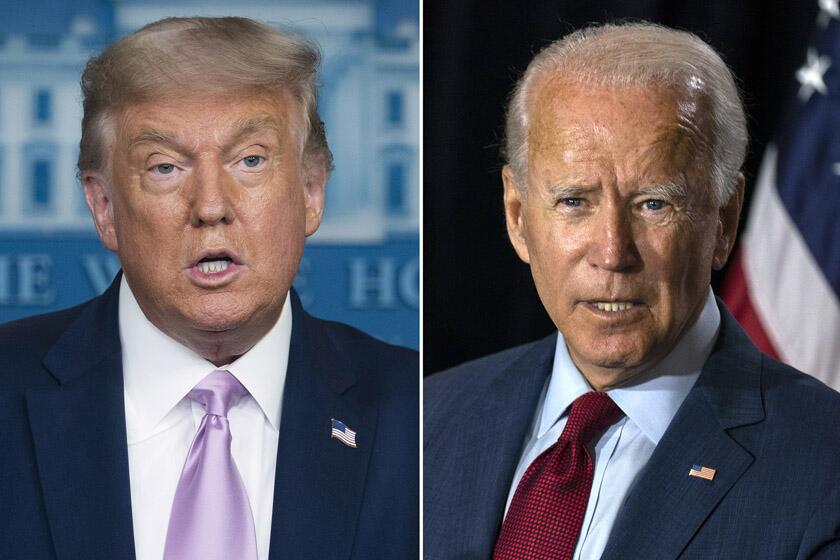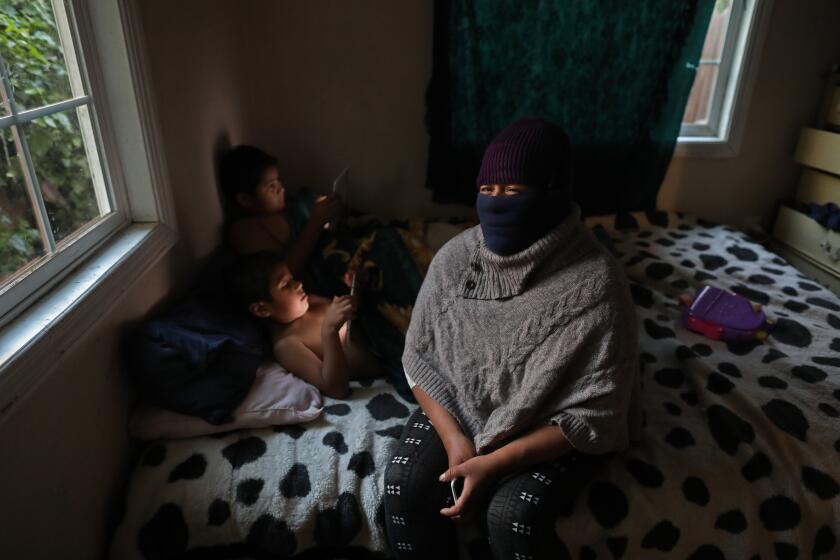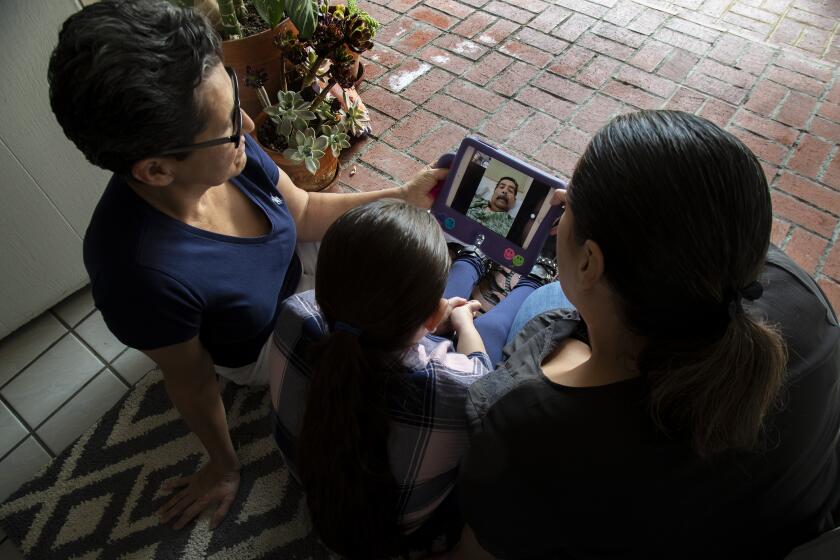Door-knocking in the COVID era: When ‘get out the vote’ becomes ‘get people help’
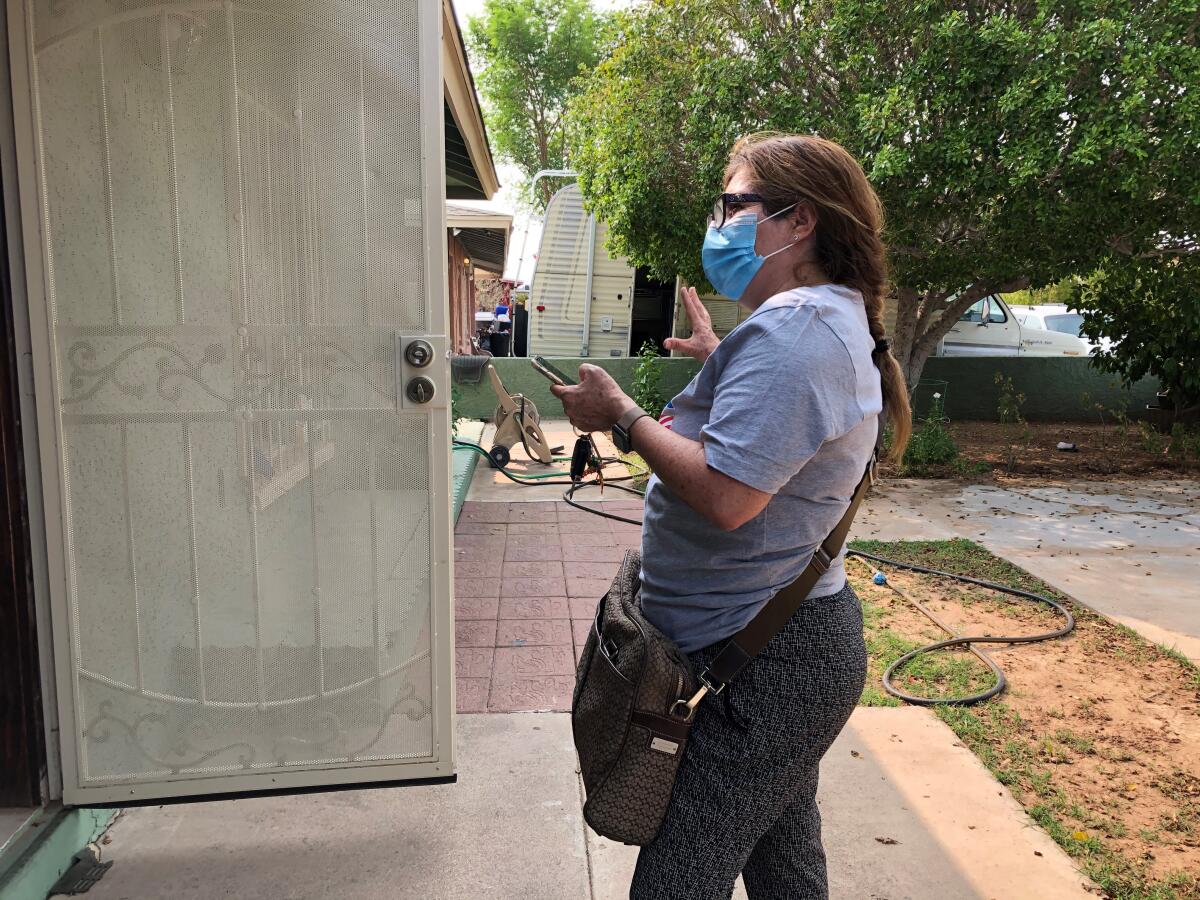
PHOENIX — When Imelda Quiroz began knocking on doors this month in search of registered voters, one question would often lead to a glimpse of their daily struggles.
“How has the pandemic affected you?” she would prompt in English, sometimes in Spanish. She wanted to get a sense of how voters were doing and what issues were important to them ahead of the November election.
What Quiroz heard was an outpouring from people worried about paying next month’s rent, electric or water bills. Parents were struggling with their children shifting to online learning without laptops or internet, she said.
“Many had lost their jobs,” Quiroz recalled on a Saturday afternoon as she walked among houses in a predominantly Latino Phoenix neighborhood. While knocking on doors for the nonprofit, nonpartisan group Mi Familia Vota, the Arizonan has met Republicans, Democrats and independents blindsided by the pandemic and economic crisis.
Advocacy groups returning to face-to-face outreach are finding a landscape changed by the coronavirus, and they have become lifelines, through food banks or passing along contacts for organizations that help with rent or utility bills. But often, canvassers said, people just want to be heard.
“When I can, I give them information,” Quiroz said, and when she can’t, she sympathizes. “Because what they want is to talk.”
Sometimes it’s hard to know how to respond, she said. “Many are hopeless.”
In Arizona, a key battleground state, outreach groups fear the crisis could suppress the vote among communities of color focused less on the election and more on surviving.
“We’re really a bit concerned that the pandemic is going to have an impact on voter registration and voting among Latinos,” said Joseph Garcia, executive director of Chicanos Por La Causa Action Fund, noting the issues facing the community.
A look at where President Trump and Joe Biden stand on key issues in the 2020 election, including healthcare, immigration, police reform and climate.
Latinos, who are being courted by both presidential campaigns, are often on the front lines of the pandemic as essential workers, and in Arizona they and Native Americans have been hospitalized at higher rates than other groups.
Nationally, the unemployment rate for Latinos during the pandemic is worse than during the recession of the late 2000s, and 70% of Latinos surveyed in April by the Pew Research Center said they did not have emergency funds to cover expenses for the next three months.
“It’s understandable that our families are very worried and focused on COVID,” said Héctor Sánchez Barba, CEO and executive director of Mi Familia Vota. But the disproportionate impact the virus has had on the community is a reason for voters to prioritize politics, he said. “This is why we must organize and raise our voices.”
Because face-to-face outreach is important for Latinos and other voters of color, community leaders say, some nonprofits and politically aligned organizations have restarted door-knocking to reach communities often missed through online and digital outreach.
President Trump’s reelection campaign has said that it has continued to hold meetups in the state for supporters, reaching thousands; campaign efforts for Democratic nominee Joe Biden have remained largely virtual as the former vice president said his campaign was following public health experts’ guidelines during the pandemic.
Both campaigns are competing intensely in Arizona, which Trump won in 2016 by less than four points. Polling suggests Biden is ahead, and turnout among Latino voters could be key for Democrats in both the presidential election and the race between Republican Sen. Martha McSally and Democratic challenger Mark Kelly. A sharp rise in Latino voter turnout during the 2018 midterm election helped deliver Democrat Kyrsten Sinema a U.S. Senate seat, some say. She won 70% of the Latino vote.
These days, Mi Familia Vota canvassers have shifted their focus from surveying the community about the pandemic to educating voters on the candidates, a ballot measure on education funding, and reminding them to vote early and by mail. The group is still working to connect voters in need with help for domestic violence and mental illness and other concerns.
The organization wants to make the connection between voters’ personal struggles and the importance of voting this year, said Eduardo Sainz, Mi Familia Vota’s Arizona state director.
“Individuals are fed up,” he said. “They know that life could be better.”
Other groups are also acting as intermediaries. The Arizona Coalition for Change partners with churches to pair voter registration and food drives. Our Voice, Our Vote, a progressive voter mobilization group, held mask giveaways and voter registration drives in Maricopa County.
Central Arizonans for a Sustainable Economy, or CASE, an organization focused on immigrant rights, economic justice and civic engagement, helped newly registered voters apply for unemployment benefits and set up a hardship fund to help service workers until they received benefits.
“It’s very hard to engage civically if you are disenfranchised because you have no economic stability,” said Rachel Sulkes, communications director for CASE, echoing a core message for the group.
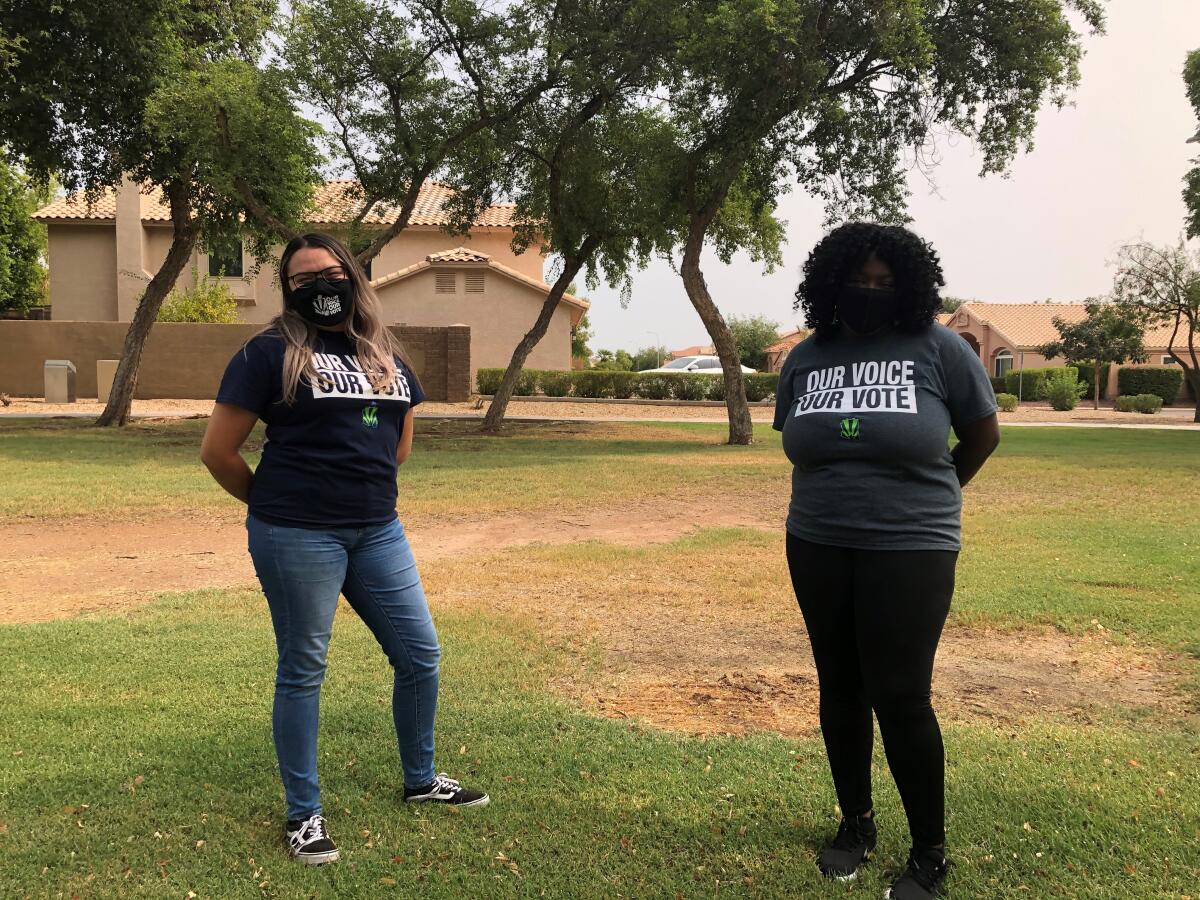
On a recent Saturday morning, canvassers for Our Voice, Our Vote were out in Chandler, a predominantly white city southeast of Phoenix, to knock on doors. The canvassers are all required to wear masks and face shields while out in the community.
Danaysha Smith, the organization’s regional field manager for Maricopa County, said she often reminds her team of about 20 canvassers to be empathetic while door-knocking. Often, a voter’s experience losing someone to COVID-19 or struggling with bills resonates with their own story, she said.
“We’re all really going through the same situation at the same time,“ she said.
That is the case for Karen Hernandez, the organization’s statewide field director. Along with Smith, she was out with canvassers on Saturday, wearing a mask that read “Our Voice, Our Vote.”
Farmworkers have long lived in overcrowded conditions. With the spread of coronavirus, Monterey County is taking action, but vegetable pickers still face a shortage of housing.
Hernandez, the daughter of immigrants, said she shares her story while canvassing. It can make it easier to connect with voters, especially on days when the temperature hits 117 degrees.
Hernandez said she and her family recently had to rally around her aunt, a single mother of two, whose work cleaning houses vanished because of the pandemic. “To have someone ... in my family have to go through that is really difficult,” she said.
She’s run across voters who are in need, just like her aunt, she said, and when she can, helps them find resources. “With this work, I really feel like I’m doing something.”
Smith remembers an older man she spoke with while phone-banking in July. The Latino military veteran, a conservative living in rural Tucson, was worried about leaving his home to get essential supplies at the store, and he was upset about how Trump was handling the pandemic. The call lasted 44 minutes and 30 seconds.
“I knew he needed someone to really unload and unleash some of his frustrations with,” Smith said. “These are the type of people that need us.”
If you’re Latino in California, even if you have the luxury of a white-collar job, it’s almost a certainty that COVID-19 will stalk the life of someone you love.
More to Read
Get the L.A. Times Politics newsletter
Deeply reported insights into legislation, politics and policy from Sacramento, Washington and beyond. In your inbox three times per week.
You may occasionally receive promotional content from the Los Angeles Times.
